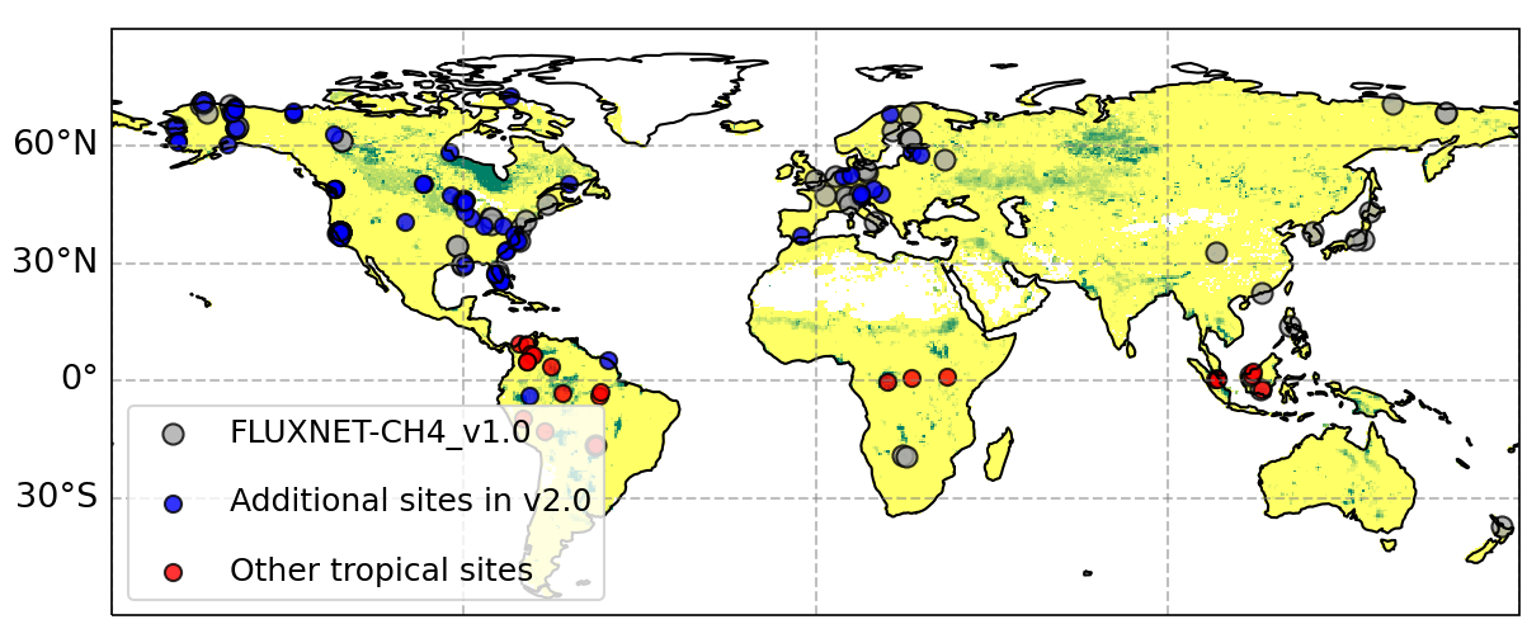
Land Intelligence (LI) lab at UT Austin examines how terrestrial ecosystems (e.g., forests and wetlands) interact with human activities and hydroclimatic hazards, with a particular focus on wildfires and land–atmosphere interactions of carbon (CH₄ and CO₂), water, and energy. We aim to better monitor, predict, and reduce hydroclimatic risks to people and ecosystems by leveraging advances in Artificial Intelligence (e.g., machine learning), Earth observations (e.g., satellite remote sensing, field measurements), and Earth system models. Learn more
Highlights

Wildfire risk in the western United States
How humans and hydroclimate contribute

AI needs to become more physically interpretable
To address critical Earth science challenges

Rising climate risk from terristrial ecosystems
Wetlands play a critical role

Global observational network of eddy covariance methane flux measurements
FLUXNET-CH₄ V2.0 is on the way — Fa plays a leading role in this effort
News
- Hiring – PhDs and Postdoc opportunities, 2026
- Upcoming workshop – Aspen global change initiative, Methane Alert, bringing together scientists worldwide, including Fa Li.
- Sep 2025 – New paper out:A novel machine learning technique to extract low-dimensional representations from high-dimensional data, enabling improved visualization, classification, and clustering, Nature Machine Intelligence.
- Sep 2025 – New paper out:Hyperspectral satellite reflectance data improves vegetation productivity estimation, Remote Sensing of Environment.
- Aug 2025 – New paper out:Physics-informed machine learning combining radiative transfer processes with leaf spectroscopy data for improved leaf trait prediction, with broad spatial, species, and temporal applicability, Remote Sensing of Environment.
- Jul 2025 – Reminder: AGU abstract submission deadline (16 July). Don’t miss Session B003, co-chaired by Fa: Advances in Measurements, Synthesis, Analysis, and Modeling of Greenhouse Gas Fluxes from Natural Ecosystems.
- Jul 2025 – New paper out:Current atmospheric satellite inversion, biogeochemical, and data-driven models exhibit biases in the temperature sensitivity of wetland CH4, Agricultural and Forest Meteorology.
- Jun 2025 – New paper out:Complex responses of wetland carbon fluxes to environmental and ecological variables, Earth’s Future.
- Feb 2025 – New paper out:Humans amplify hydroclimate-linked wildfire risk in the western US, PNAS Nexus.
